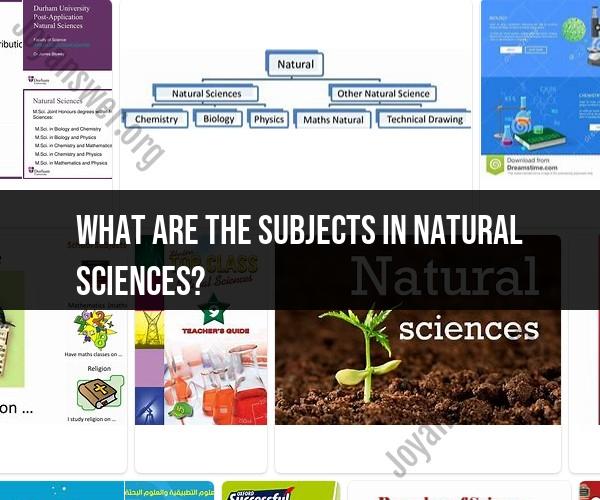What are the subjects in natural sciences?
Natural sciences encompass a wide range of subjects that seek to understand and explain the natural world through empirical evidence and systematic observation. Some of the key subjects within natural sciences include:
Biology: The study of living organisms, their structure, function, growth, evolution, and interactions with their environments. It includes subfields like microbiology, genetics, ecology, and more.
Chemistry: The study of the composition, properties, structure, and behavior of matter. Chemistry is often divided into branches like organic chemistry, inorganic chemistry, physical chemistry, and analytical chemistry.
Physics: The exploration of fundamental principles that govern the behavior of the physical universe. It includes classical physics, quantum mechanics, relativity, and various specialized fields such as astrophysics and nuclear physics.
Astronomy: The study of celestial objects, including stars, planets, galaxies, and the universe as a whole. It involves observations, theoretical modeling, and the study of cosmic phenomena.
Geology: The examination of Earth's structure, composition, and processes that shape its surface. Geology includes subfields like mineralogy, petrology, and seismology.
Environmental Science: The interdisciplinary study of the environment and the impact of human activities on the natural world. It addresses issues related to conservation, sustainability, and climate change.
Earth Sciences: This broader field encompasses geology, meteorology (weather and climate), oceanography (the study of oceans), and other Earth-related disciplines.
Ecology: The study of interactions between organisms and their environments, including the relationships between different species and the flow of energy and nutrients in ecosystems.
Botany: The study of plants, including their classification, physiology, ecology, and evolution.
Zoology: The study of animals, covering their biology, behavior, classification, and diversity.
Neuroscience: The scientific study of the nervous system, including the brain, spinal cord, and peripheral nerves.
Biotechnology: The application of biological principles and techniques to develop products and processes that improve human life, such as genetic engineering and pharmaceuticals.
Meteorology: The study of the Earth's atmosphere, weather patterns, and climate. Meteorologists analyze atmospheric conditions to make weather forecasts.
Oceanography: The scientific exploration of the world's oceans, including their physical properties, marine life, and oceanic processes.
Materials Science: The investigation of the properties, structure, and applications of materials, including metals, ceramics, polymers, and composites.
These subjects are interconnected and often overlap, leading to interdisciplinary research and discoveries. Natural sciences play a crucial role in advancing our understanding of the natural world, technological innovation, and addressing complex global challenges.












